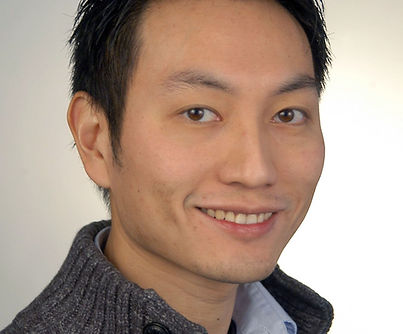
Topic 4: Ocean Biodiversity
Keynote Speakers

Dr. Christopher Harley
Chris Harley studies the ecology and biodiversity of coastal marine ecosystems. He is especially interested in how environmental stress and interactions among species determine ecological responses to climate change.

Dr. Lydia Teh
I’m an interdisciplinary scientist who examines the human dimensions of marine ecosystems. I apply empirical methods and modelling approaches to understand the dynamic interactions between people and the marine environment, often through the lens of small-scale fisheries. My current projects focus on climate adaptation and vulnerability assessment which are geared towards identifying adaptation pathways towards a sustainable future. I am motivated to do science that provides practical tools and strategies to protect the health of oceans and well-being of ocean-dependent communities, especially in data-poor and developing countries.

Ned Murray
Murray is a member of Semath First Nation located in the Sto:lo territory (Fraser Valley). His work experience and career has been dedicated to serving First Nation organizations in management capacities. He served as a Councillor for Sumas First Nation for 25 years, retiring in 2022 to dedicate more time with family and two grandchildren. Murray is currently the Executive Director of the Lower Fraser Fisheries Alliance (LFFA) and has been employed there since the organization’s inception in 2010. He serves on numerous regional and provincial fishery committees and was appointed to the Pacific Salmon Commission in 2013. He is one of two First Nation Commissioners serving Canada’s interests in the Pacific Salmon Treaty negotiations. Murray’s ancestral name is Kwilosintun, a name that was passed down from his late father Clarence Ned Jr, and now shared with his two sons.

Dr. William Cheung
Dr. William Cheung is a marine ecologist and professor at the University of British Columbia, as well as Director of the Institute for the Oceans and Fisheries. His research focuses on how climate change, overfishing, and other human pressures are reshaping marine biodiversity and affecting coastal communities around the world. Dr. Cheung is internationally recognized for his contributions to global ocean policy, and he works closely with organizations like the IPCC and the UN to promote sustainable and equitable ocean governance. His work bridges science and policy, emphasizing the need for solutions that center both environmental and social justice.
Youth Speakers

Amos Zhu
My name is Amos and I’m a student entering grade nine at West Point Grey Academy. I’m very passionate about helping to protect the environment and I’ve been especially interested in the oceans from a young age. It’s always been important to me to raise awareness for the environment and this conference gave me the perfect opportunity to do just that. I’ve participated and spoken in conferences similar to this one such as LCOY, I’ve also attended annual meetings and workshops at UBC for about four years. I’ve written a literary review on ways to protect native cetaceans and have read. Finally, I’ve also visited many first nations peoples in hope of gaining their valuable insight on how to protect the land and sea.
